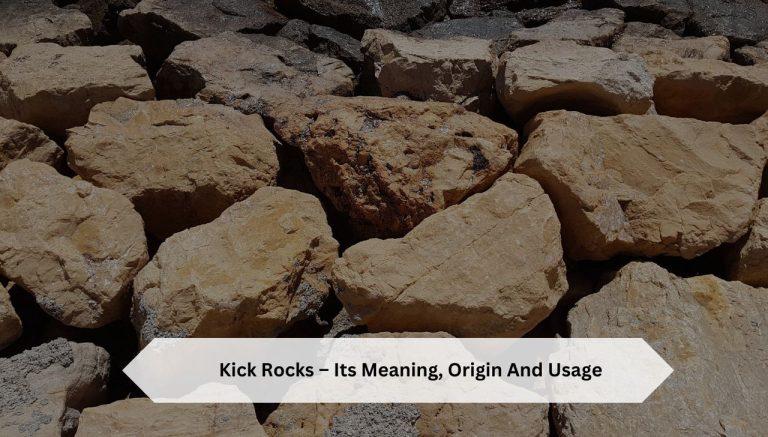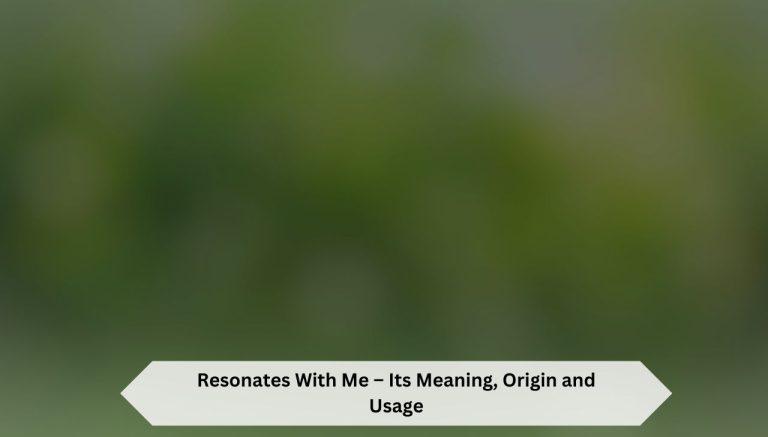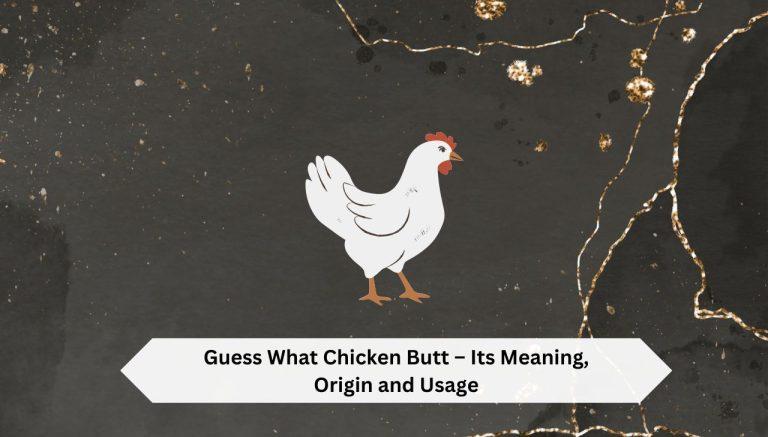But Did You Die – Its Meaning, Origin And Usage
The Meaning Of “But Did You Die
The phrase “But did you die?” often pops up when someone thinks another person is making too big a deal out of something. It’s like saying, “You’re still alive, so stop complaining.” This question makes it seem like if you didn’t die, then nothing else matters—your fears or troubles aren’t necessary. It’s meant to add some humor and lighten the mood, but it can also make light of real worries. It says that surviving counts, no matter how rough things were.
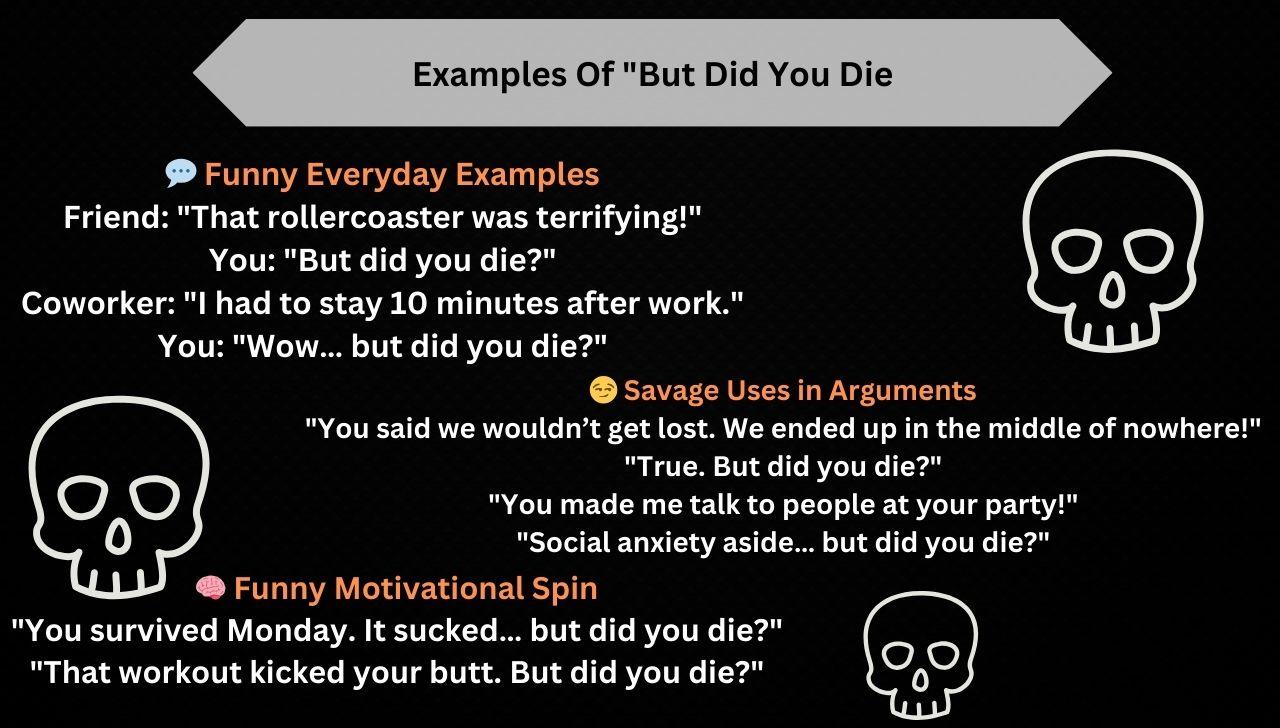
Examples Of “But Did You Die
The phrase “But did you die?” is a sarcastic, humorous way to downplay someone’s complaints, fears, or exaggerations — often used when someone is being dramatic about an experience. It’s playful, bold, and a bit sassy. Here are some fun and relatable examples of how to use “But did you die?” in different situations:
Funny Everyday Examples
- Friend: “That rollercoaster was terrifying!”
You: “But did you die?” - Coworker: “I had to stay 10 minutes after work.”
You: “Wow… but did you die?” - Sibling: “Mom made me do all the dishes!”
You: “And yet, you’re still breathing. But did you die?” - Friend: “I tripped in front of my crush. So embarrassing!”
You: “Okay, cringe… but did you die?” - Partner: “You made me try spicy noodles. I nearly died!”
You: “Nearly. But did you?”
Also See – The Eyes Are The Window To The Soul – Its Meaning, Origin and Usage
Savage Uses in Arguments
- “You said we wouldn’t get lost. We ended up in the middle of nowhere!”
“True. But did you die?” - “You made me talk to people at your party!”
“Social anxiety aside… but did you die?” - “You forced me on a hike. My legs are still shaking.”
“Sore, not dead. But did you die?”
Funny Motivational Spin
- “You survived Monday. It sucked… but did you die?”
- “That workout kicked your butt. But did you die?”
 For Shopping, Dating, & Drama
For Shopping, Dating, & Drama
- Friend: “You spent $200 on shoes??”
You: “Yes. But did I die? No. So we’re good.” - Date: “You ghosted me for 2 days!”
You: “Yeah, but did you die though?”
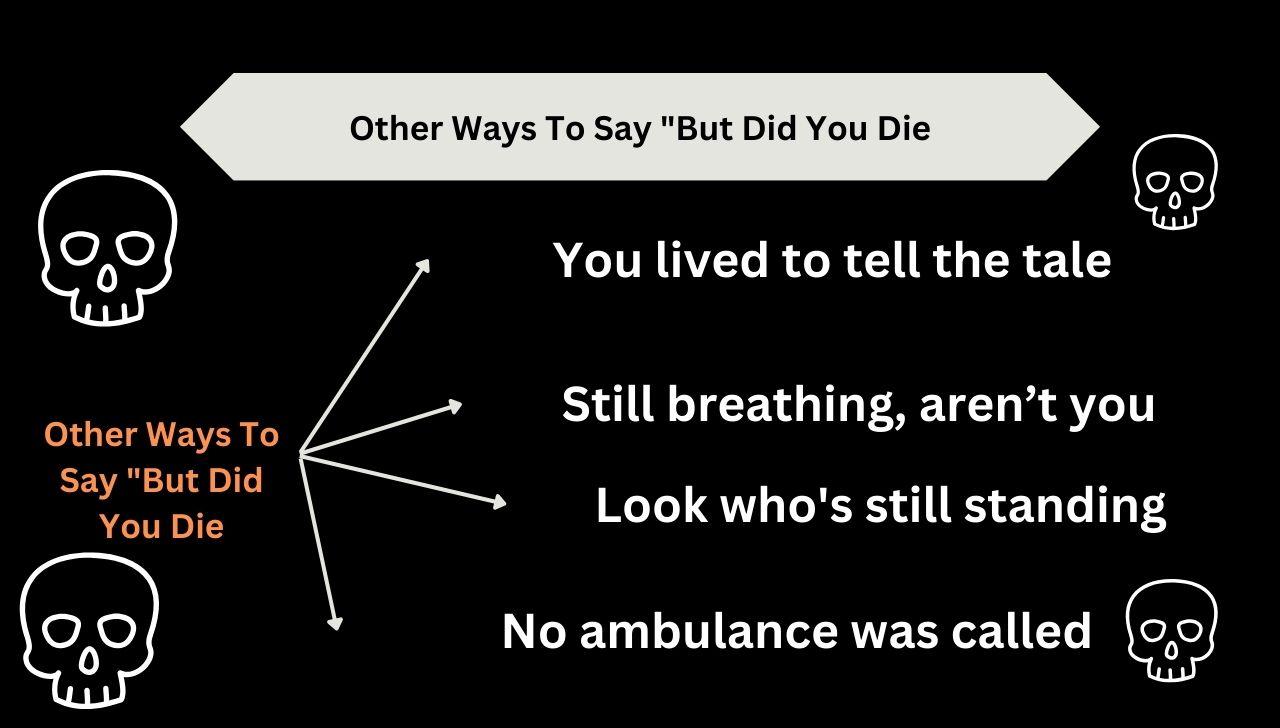
Other Ways To Say “But Did You Die
The phrase “But did you die?” is often used to brush off minor complaints with some humor. Sometimes, we need a sarcastic jab to lighten the mood after a dramatic tale. “But did you die” does just that—with a punch of humor. If you’re looking to say it differently while keeping the sass alive, these lines will do the trick.
- You lived to tell the tale
- Still breathing, aren’t you
- Guess it didn’t kill you
- Look who’s still standing
- And yet, you survived
- No ambulance was called
- You’re here, right
- Death didn’t show up
- You made it out alive
- Drama level: survived
- Just a scratch, huh
- No obituary needed
- Your heart’s still ticking
- You’re fine, stop whining
- Walking and talking, so
- Could’ve been worse
- You weren’t vaporized
- Not fatal, clearly
- Bruised ego, not body
- Survivor of your own story
- Emergency room avoided
- You’re not a ghost
- Still kicking, I see
- No funeral plans needed
- Guess it wasn’t the end
- That didn’t break you
- Still on Earth, my friend
- And here you are, alive
- No haunting reports yet
- Not even a near-death
- Shaken, not dead
- Zero casualties reported
- You’ll live to complain again
- Crisis survived, obviously
- You’re not six feet under
You may like this – BSF – Its Meaning, Origin and Usage
How and when can you use the phrase ‘Risk It For The Biscuit’?
“Risk it for the biscuit” is a simple way to say, take a chance if you want to win something good. Use it when unsure about doing something because they fear what might happen. It’s like giving them a little push to go for it, telling them the reward could be worth the risk. You might hear it when someone thinks about putting money into a new business idea or asking someone out. It works best when the situation is not too severe, adding a bit of fun and boldness to everyday choices.
Origins Of “But Did You Die”
The phrase “But Did You Die?” became well-known from the movie “The Hangover Part II” in 2013. In the film, Mr. Chow, played by Ken Jeong, uses it to brush off other characters’ complaints after a rough experience. His line mixes humor with a bit of relief, making a strong impression on the audience. This phrase didn’t take long to catch on beyond the movie. Soon, people were using it all over social media and everyday talk. It became a popular meme; by 2014, it was even included in the Urban Dictionary. This shows how it’s become common to play down serious complaints by comparing them to life-or-death situations.

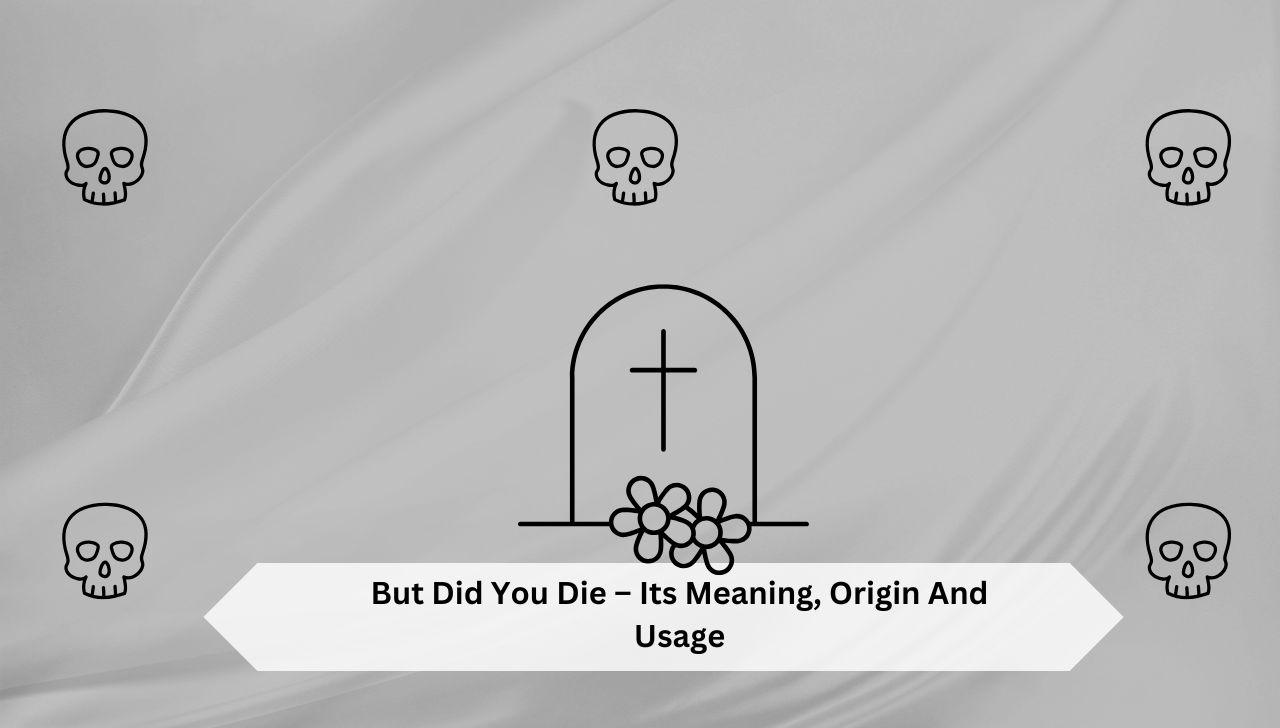
 For Shopping, Dating, & Drama
For Shopping, Dating, & Drama

